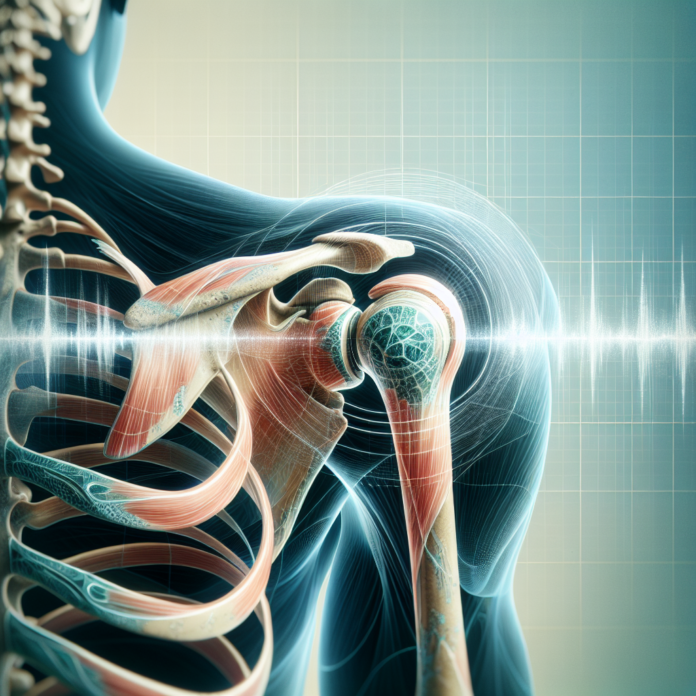After undergoing shoulder surgery, such as a rotator cuff repair, patients often experience unexpected sensations, including the perplexing clicking or popping of the shoulder joint. Naturally, these sounds can raise concerns about the recovery process and whether they indicate a complication. In this blog, we delve into the causes of these post-surgical symptoms, drawing on expert insights from Dr. David Guyer, a triple board-certified orthopedic surgeon and sports medicine specialist. We’ll explore how factors like inflammation, joint mechanics, and post-operative stiffness contribute to clicking sounds, and discuss when, if ever, these noises might warrant further medical attention. Join us as we demystify post-surgical shoulder sounds and provide guidance for a confident recovery journey.
Common Causes of Clicking Post-Surgery
The experience of hearing and feeling clicking sounds in your shoulder following a rotator cuff repair can be unsettling. However, as Dr. David Guyer assures, these sounds are often not indicative of any serious complications or failures in the surgery.
When it comes to post-surgical clicking, there are several potential reasons why patients might experience these noises. Here are some of the main causes:
- Inflammation or Thickening of the Bursa: The bursa is a small fluid-filled sac that acts as a cushion between the bones, tendons, and muscles around your joints. Post-surgery, the bursa can become inflamed or thickened, leading to a clicking sound as you move your shoulder.
- Abnormal Joint Mechanics: After surgery, particularly in the early stages of recovery, the mechanics of the shoulder joint can be disrupted. The altered movement patterns can cause the joint to click or pop as it moves.
- Stiffness and Weakness: It’s common for the shoulder to feel stiff after surgery due to the muscles around the joint being weak or not fully recovered. This stiffness can lead to altered movement, resulting in clicking or popping sounds.
The Role of Arthritis
In some cases, underlying conditions like arthritis might contribute to clicking sounds. Arthritis involves the wear and tear of the cartilage lining the ball and socket of the shoulder joint. This condition can cause a clicking sound as the rough surfaces move against each other.
However, in the context of recent surgery, arthritis is less likely to be the primary cause of clicking if the rotator cuff repair was the main focus. Dr. Guyer notes that significant arthritis is usually identifiable during surgery, and separate treatment strategies may be discussed.
When to Be Concerned
For most patients, clicking and popping in the shoulder are simply part of the recovery process. These noises often subside as the shoulder strengthens and becomes more flexible. However, there are instances where further evaluation might be warranted:
- Persistent Noises: If the clicking persists for several months into rehabilitation, it might be worth consulting with your healthcare provider. Although not inherently problematic, prolonged clicking could indicate that something in the joint continues to move abnormally.
- Accompanying Pain or Dysfunction: If the clicking is accompanied by pain or a significant decrease in shoulder function, it could indicate a potential issue that needs further investigation.
- Changes in Sensation: If you notice changes in sensation, such as numbness or tingling alongside the clicking, consulting with an orthopedic specialist is advisable.
Steps for Addressing Concerns
If you find yourself worried about post-surgical clicking, there are a few steps you can take:
- Adhere to Your Rehabilitation Program: Continue with your prescribed physical therapy exercises to enhance strength and flexibility. This can naturally reduce clicking as the tissues heal and the joint stabilizes.
- Monitor Symptoms: Keep a record of when you notice clicking, any associated pain, and how your shoulder mobility changes over time. This information can be useful for your doctor if a follow-up is needed.
- Consult with Your Surgeon: A follow-up with your surgeon can provide peace of mind. They may perform clinical tests or suggest imaging if they feel it is necessary to rule out complications.
- Consider Anti-Inflammatory Measures: Inflammation can exacerbate clicking. Discuss with your healthcare provider whether anti-inflammatory medications or interventions might be appropriate.
Holistic Approaches to Recovery
Beyond addressing the mechanical aspects of shoulder recovery, considering holistic practices can support overall well-being:
- Nutrition: A balanced diet rich in anti-inflammatory foods can aid in recovery. Omega-3 fatty acids, found in fish and flaxseeds, are particularly beneficial for joint health.
- Mindfulness and Stress Management: Techniques such as meditation or yoga can help manage the stress of recovery and potentially improve outcomes.
Conclusion
The journey to recovery after rotator cuff surgery includes various stages, and understanding what is normal can help alleviate unnecessary worries. While post-surgical clicking can be disconcerting, knowing that it often stems from benign causes like inflammation or temporary stiffness can provide reassurance. Keep communication open with your healthcare providers to ensure that your unique recovery needs are met, and focus on maintaining the recommended rehabilitation activities to support optimal healing.
